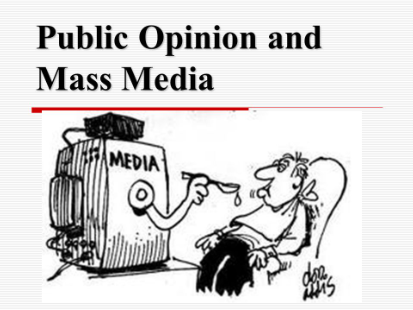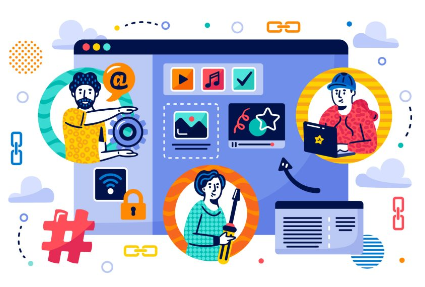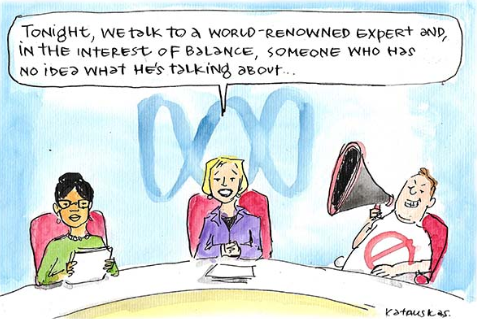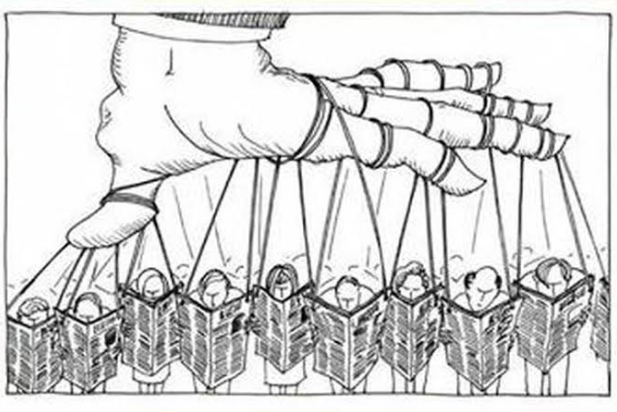Introduction
In today’s interconnected world, the media plays a pivotal role in shaping public opinion and driving political discourse. Whether through traditional channels such as newspapers and television or the ever-expanding realm of social media, it wields an immense power to influence the way we perceive and understand the world around us.
From framing issues and setting agendas to amplifying certain voices and providing platforms for debate, the media has become an indispensable force in shaping public opinions and shaping the direction of political conversations. Understanding the profound impact of media in shaping public opinion is crucial for individuals and societies alike, as it directly impacts the dynamics of democracy, governance, and the overall well-being of nations. This article examines the media‘s varied role in affecting public opinion and political discourse, emphasizing its power and responsibility.
Media as the Fourth Estate
The media is sometimes referred to as the “fourth estate” and serves as a crucial check and balance on political authority. It serves as a watchdog, keeping governments, institutions, and public people accountable. Investigative journalism helps organisations uncover corruption, fraud, and injustice, ensure transparency and educate citizens.
Agenda Setting and Issue Framing
Media sources can affect public opinion by setting agendas and framing issues. They can shape public discourse and impact the national conversation by deciding which topics receive primary coverage. Media organisations select which issues are worthy of public attention and how they are presented to the public, impacting how individuals perceive and interpret events. The framing of news articles and the language used can impact public opinion and form political narratives.
Media Bias and Polarisation
In today’s media world, biases have become a major worry. Biased reporting can impact public perception by selectively presenting information that supports a specific political philosophy or purpose. This prejudice can lead to social polarization, in which people are only exposed to information that validates their preexisting opinions, creating echo chambers and impeding healthy political conversation. For the public to navigate biased reporting and generate well-rounded perspectives, media literacy and critical thinking are crucial tools.

Social Media and Information Democratisation
The rise of social platforms has democratized information distribution, providing individuals with a forum to voice their thoughts and engage in public conversation. Citizens can now directly engage with political issues via social media, bypassing traditional gatekeepers. It has also aided in establishing online communities oriented on specific interests and beliefs, allowing for the sharing of ideas and the mobilization of like-minded people. The spread of misinformation and a lack of fact-checking on various platforms, on the other hand, offer substantial issues, highlighting the importance of responsible consumption and literacy.

The Media’s Role in Moulding Public Opinion
By providing narratives, conducting interviews, and analyzing political events, media outlets wield enormous power in moulding public opinion. The media’s tone, vocabulary, and imagery can impact perception and alter public opinions. The media can attract attention to social injustices, influence policy agendas, and inspire societal change by emphasizing specific issues and providing a voice to marginalized communities. However, with power comes responsibility, and to maintain their credibility and contribute to a healthy democratic debate, media organizations must aim for accuracy, impartiality, and ethical journalism.

Conclusion
In conclusion, the role of media in shaping public opinion and political discourse is undeniable. The media‘s ability to influence our perceptions, beliefs, and attitudes has profound implications for the functioning of democratic societies. Through its power to frame issues, set agendas, and amplify voices, the media has the capacity to sway public opinion and shape the direction of political conversations.
However, with great power comes great responsibility. It is essential for media organizations to uphold ethical standards, provide accurate and balanced information, and foster diverse perspectives to ensure a healthy and vibrant public discourse. Additionally, as consumers of media, we must actively engage in critical thinking, seek multiple sources of information, and be aware of potential biases or agenda-setting tactics. By recognizing the influence of media on our opinions and participating in informed discussions, we can contribute to a more inclusive, informed, and democratic society.
-Liya Ann Mary
Must Read: UNVEILING THE SCHOOL DROPOUT DILEMMA: ANALYZING CAUSES AND FORGING A PATH TO PREVENTION


